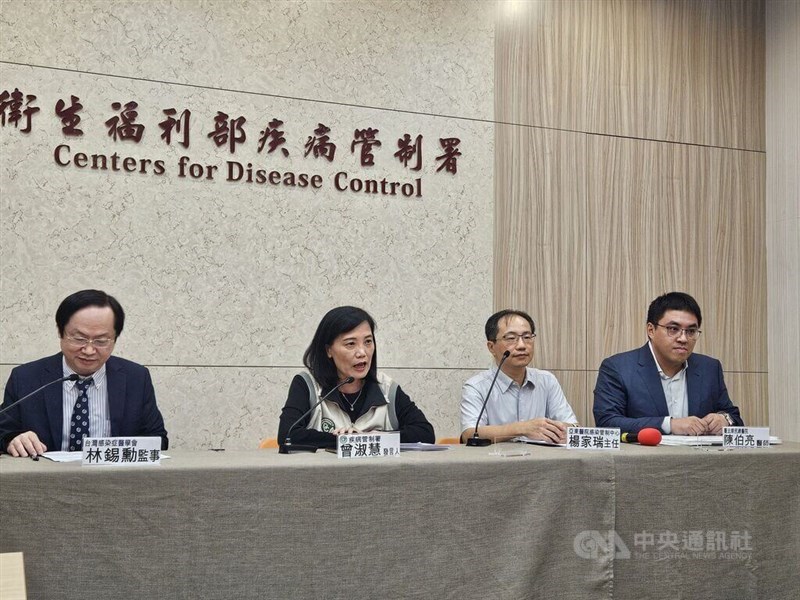
Taipei, Aug. 5 (CNA) Taiwan's Centers for Disease Control (CDC) on Monday raised its travel alert for China's Guangdong Province to Level 2 in response to the growing chikungunya outbreak in the region, urging travelers to take "enhanced precautions" against the mosquito-borne disease.
The chikungunya outbreak in Guangdong is "very severe," with cases surging in recent days, while both Hong Kong and Macau have reported imported cases linked to the region, CDC spokesperson Tseng Shu-hui (曾淑慧) said at a regular news briefing in Taipei.
"Given Taiwan's geographic proximity [to Guangdong] and the distribution of vector mosquitoes in the country, the CDC has raised its Travel Health Notice for the province from Level 1 'Watch' to Level 2 'Alert,'" Tseng added.
The CDC's Travel Health Notice is a three-tier alert system, with Level 1 "Watch" advising travelers to "practice usual precautions," Level 2 "Alert" recommending "enhanced precautions," and Level 3 "Warning" urging the public to "avoid nonessential travel."
Guangdong was placed on the CDC's Level 1 list on July 23, and the province -- which reported 2,892 new cases in the past week -- was upgraded to Level 2 on Monday.
As of Tuesday, Brazil and the French overseas territory of Réunion Island remain on the CDC's Level 2 alert list for chikungunya, with over 250,000 cases reported worldwide so far this year, according to a CDC update in late July.
Travelers planning to visit Guangdong should take precautions against mosquito bites by wearing light-colored long-sleeved clothing and staying in accommodations equipped with window and door screens to keep mosquitoes out, the CDC said in a news release.
They are also advised the use of mosquito repellents containing ingredients such as DEET, picaridin, or IR3535, the CDC added.
As of Monday, all 16 chikungunya cases reported in Taiwan this year were imported, CDC Epidemic Intelligence Center Director Kuo Hung-wei (郭宏偉) said at the briefing.
The majority were linked to Indonesia, with 13 cases, followed by the Philippines with two cases, he added.
As part of prevention efforts in Taiwan, the CDC said it has continued to strengthen health education and fever screening measures for chikungunya at international ports and Mini Three Links checkpoints -- ferry routes that connect China with Taiwan's outlying islands of Kinmen and Matsu.
Travelers arriving from chikungunya-affected areas who show symptoms such as fever will be subject to blood testing and follow-up monitoring, Tseng said.
According to the CDC, chikungunya is transmitted by Aedes albopictus and Aedes aegypti, the same mosquito species that spread dengue fever.
Symptoms of the disease, including sudden fever, joint pain, headache, nausea and fatigue, typically last three to seven days, with about half of those infected also developing a rash, the CDC added.
Unlike dengue fever, chikungunya can cause lingering fatigue and joint pain that may last for weeks, months, or even years, the CDC said, adding that those at higher risk of severe illness include newborns, adults aged 65 and older, and individuals with conditions such as hypertension, diabetes or cardiovascular disease.
- Society
- Politics
Former President Chen to host show on Mirror TV's YouTube channel
01/02/2026 09:28 PM - Politics
Ex-VP Chen Chien-jen to serve as Academia Sinica head starting June
01/02/2026 09:07 PM - Business
Manufacturing activity expands for 3rd straight month
01/02/2026 08:49 PM - Politics
Budget deadlock continues as Legislature blocks review
01/02/2026 07:23 PM